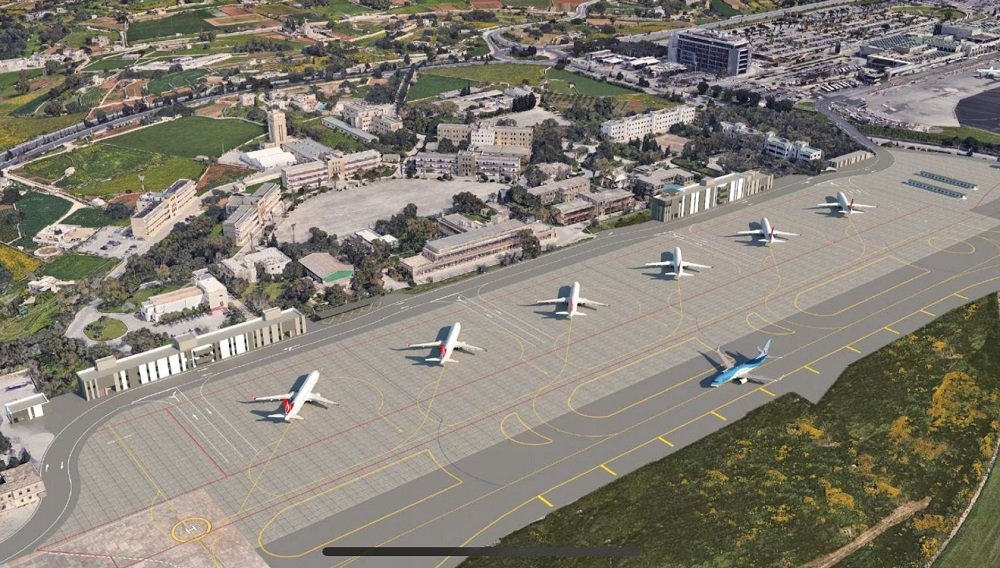Malta International Airport’s (MIA) capital expenditure for the first six months amounted to approximately €8 million as works on several projects around the terminal and the airfield continued apace, CEO Alan Borg said during a passenger traffic mid-year announcement.
While works on Apron X are reportedly on track for the first three aircraft parking stands to be in operation by summer 2024, the last quarter of the year will see the commencement of the extensive rehabilitation of Runway 23-05.

Apron X render approved by the Planning Authority in March 2022
Concurrently, the company will kick-start works on the first phase of the terminal expansion project, which will entail a 1,550 square metre westward expansion that will allow for the introduction of an additional arrivals route leading to the baggage reclaim area and the addition of two baggage reclaim belts by 2024.
Having considered its “solid traffic performance and expectations for the winter season”, the company announced the payment of an interim dividend of €0.03c per share to its shareholders.
Record mid-year results
Passenger traffic at MIA for the first half of the year amounted to 3.43 million passengers, surpassing 2019 highs by 5.6 per cent and putting MIA among a group of European airports (48 per cent) whose mid-year passenger volumes exceeded pre-pandemic traffic.
In parallel, the airport registered buoyant monthly seat load factors (SLF) that peaked in June at 86 per cent and outperformed both 2022 and 2019 levels.
MIA now expects traffic to be in line with 2019 levels by the end of 2023.
These results, MIA CEO Alan Borg said, indicate that the appetite for travel to the Maltese Islands has not waned despite challenging macroeconomics. However, referring to a travel sentiment survey published in July by the European Travel Commission (ETC), Mr Borg noted that inflation and rising airfares are expected to start dragging down demand for travel in Europe.
“We are extremely satisfied with our mid-year performance, yet we cannot let our guards down if we are to maintain our momentum against expected headwinds. To this end, we remain committed to working with the Malta Tourism Authority on securing more connections for our islands, particularly since, until now, the recovery of our connectivity continues to lag behind that of passenger volumes,” said Alan Borg, going on to thank the airport team and all stakeholders for their contribution to what has been an exceptional first half.
Malta Tourism Authority (MTA) Chief Executive Officer, Carlo Micallef, also expressed his satisfaction with how MIA’s mid-year traffic performance had translated into record results in tourism numbers.
He observed that, although capacity from Malta’s source markets has yet to fully recover, the Malta Tourism Authority’s extensive marketing together with destination appeal are leading to higher aircraft utilisation to grow tourism numbers. However, like Mr Borg, Mr Micallef noted that a lot remains to be done to maximise Malta’s connectivity opportunities.
Main Image:
